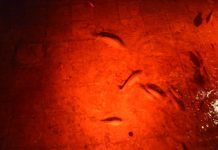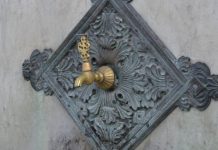VI Such, you see, were Robert’s plans and intentions. The Emperor’s on the other hand were different, more subtle and more clever. Both the leaders, however, kept their troops in camp whilst meditating upon their strategy and tactics so that they might use their powers scientifically. And Emperor was planning a sudden night-attack from both sides upon Robert’s entrenchments.
He commanded the whole native army to march by way of the salt-pits and attack from the rear, and he did not object to their undertaking this longer march as it would add to the unexpectedness of their attack. He himself intended to attack Robert from the front directly he ascertained that his other troops had arrived. Robert, however, left his tents standing empty, and crossing the bridge by night (on October 18th of the fifth Indiction) took possession with his whole army of the chapel built long ago to the Martyr Theodore.
And there throughout the night they sought to propitiate the Deity, and also partook of the Immaculate Sacred Mysteries. In the morning he drew up his troops in order of battle and stationed himself in the centre of the line; the wing near the sea he entrusted to Amicetas (one of the illustrious Counts, brave in thought and deed), and the other to his son Bohemund, nicknamed Saniscus. When the Emperor learnt of this, as he was clever in hitting upon the best expedient in a serious crisis, he re-adapted his plans in accordance with these happenings, and drew up his lines on the slopes by the sea.
Carried double-edged axes
After dividing his forces, he did not interfere with the barbarians who were starting to make their attack upon Robert’s camp, but detained those of them who carried double-edged axes on their shoulders, and ordered them to discard their horses and with their leader, Nabites, to march in rows at a short distance in f ront of the regular army; this tribe all carried shields. The rest of the army he divided into phalanxes and himself took the centre of the line, on his right and left he placed respectively the Caesar Nicephorus Melissenus and Pacurianus, called the ” Great Domestic.”
The space between himself and the barbarians who were walking he filled with a fairly large number of soldiers skilled in archery whom he planned to send on ahead against Robert, and so he told Nabites that when these archers wanted to ride out suddenly against the Franks and retreat again, he must immediately give them passage by withdrawing his men to either side, and then afterwards close up again and march on in close order.
Read More about To succour the Emperor








